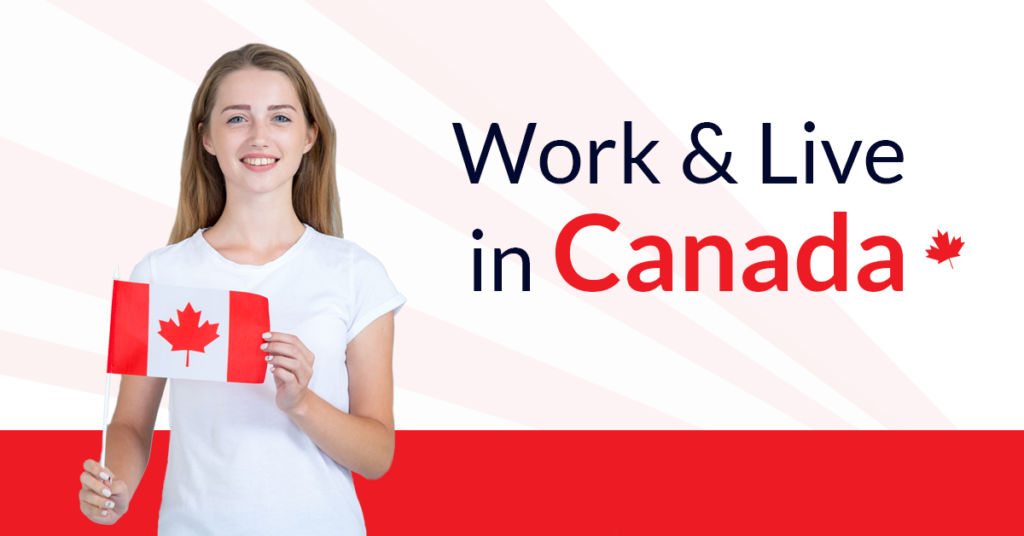
- November 26, 2022
- Admin
- 1
Canada is a great place to study, but it’s also a great place to work. Many international students in Canada want to stay and work after they graduate! That’s why we’ve put together this guide on how to get an open work permit (OWP) in Canada so that you can stay here for as long as possible after college or university.
What is an Open Work Permit?
An open work permit is a Canadian immigration document that allows you to work for any employer in Canada, regardless of whether or not they are on the list of employers the government has approved. In other words, you can work for any employer willing to hire you, making an open work permit highly valuable for people who want flexibility in their career path.
Suppose your employer does not have a job offer from Service Canada (the federal department responsible for issuing permits). In that case, your application will be refused by Immigration Refugees and Citizenship Canada (IRCC). However, suppose they have an approved job offer from Service Canada (or are willing to apply for one). In that case, IRCC will issue them an open work permit if they meet all other criteria required under Canadian immigration law.
Who can apply for an Open Work Permit?
- You must be a citizen of a country that has an agreement with Canada
- You must have a valid study permit
- You must be studying at a designated learning institution in Canada.
How do I apply for an Open Work Permit?
The process is pretty straightforward if you are looking to apply for an open work permit in Canada. However, you must understand the requirements and rules of the program before proceeding.
First, you’ll need to be eligible for one of these permits. This means having a valid study permit (if school), having enough money in your bank account, or having a job offer letter from a Canadian employer (among other things). If this isn’t true, don’t worry! Different ways may help you get your foot in the door without jumping through all these hoops immediately—we’ll talk more about those later.
After that’s settled, let’s move on to what goes into applying for an open work permit in Canada (or any other country).

Eligibility criteria for open work permits in Canada
You must meet several eligibility criteria to apply for a real work permit in Canada.
- You must be eligible for a study permit.
- You must have a job offer from a Canadian employer, or you may be able to use your funds to support yourself while you’re working. The employer may need to apply on your behalf, depending on how long you will stay in Canada and whether they have the legal status and documentation required for hiring foreign workers. If you plan on supporting yourself with your funds, make sure that there are enough funds available before applying for an open work permit—if there aren’t enough, then this type of visa will not be granted until there are enough saved up!
- You also must meet all other requirements set out by Citizenship Immigration Canada (CIC) under their program guidelines; these include having enough money set aside as well as being able to support any family members who are accompanying them on their trip overseas.
Is there any work permit that allows me to work anywhere?
It depends on your situation. There are different work permits, and some employers have special arrangements with the government to hire foreign workers without applying for a work permit. If you don’t qualify for either, there is another option: the open work permit.
The open work permit allows you to work anywhere in Canada, but it isn’t tied to a specific employer—you can change jobs or even move provinces as long as you keep working legally! The main thing to remember is that this visa is temporary; it expires after three years and then needs to be renewed if you want it again (though at least it won’t cost any money).
Why is someone simultaneously applying for an Open Work Permit and a study or work permit?
The Open Work Permit may be your best option if you are a student. The reason is that when applying for an Open Work Permit and a study or work permit simultaneously, they will ask you what your goals are with studying in Canada and whether or not it is related to finding employment upon graduation.
If so, this would qualify as an International Student Co-op or Internship program, allowing students up to 40 hours of on-campus work per week during school breaks and 20 hours per week during regular semesters (up until June 30th). This means that students can pick up extra money working on campus while still studying full-time!
If you’re unsure if this opportunity works for your needs, don’t forget we can help! We’ve helped hundreds of people get their dream jobs in Canada by matching them with companies looking for experienced workers worldwide! Most importantly, though, we make sure everyone gets approved before making any commitments – so no worries there either 🙂
Can my spouse, partner, or child come with me while I'm on an Open Work Permit in Canada?
Yes. Your spouse or partner can come with you while you’re in Canada on an open work permit. You’ll also be able to bring your children with you, but they must have the same immigration status as your spouse or partner.
If a child is under 18 years old when they enter Canada, they may not be able to work until their Canadian Immigration application has been approved. Their visa for permanent residence has been issued by IRCC (CIC).
Work Permit Restrictions
The open work permit is temporary. It does not allow you to travel freely in and out of Canada. Before boarding your flight to Canada, you must apply for an eTA (electronic travel authorization). You will need an open work permit to study in Canada. Still, this article only covers getting an available work permit as an international student or exchange visitor.
The open work permit allows you to stay in Canada for up to three years from the date it was issued, depending on which province or territory’s laws apply (some provinces have different rules). The time that you spend outside of Canada does not count towards this time limit unless:
- You have been granted another type of temporary resident status during these three years; or
- You were working full-time as a Canadian permanent resident under any class except Study Permit Holder; or
- After returning from a trip outside of Canada, you or your employer apply for another type of Work Permit within 30 days of returning home.
Open Work Permit vs. Job-Specific Work Permit
There are two types of work permits in Canada: open and job-specific.
An open work permit allows you to work anywhere in Canada, which means that your employer has no restrictions on where they can hire you. The employer can be any business or organization, from a restaurant to a construction company to the government.
Open work permits are valid for up to three years and allow you to switch jobs if something better comes along—but your new position must also fall under one of the approved occupations listed on your application form. If not, then an exception needs to be made by immigration authorities before they’ll issue it; this process can take anywhere from two weeks up until several months, depending on how busy they are at any given time (and whether or not it falls into their current backlog).
If you want more stability with one specific job offer secured before applying for your permit (as opposed to having multiple options available), consider applying for a “job-specific” work permit instead. Job-specific Work Permits require written confirmation from employers who plan on hiring foreign workers before submitting applications through Citizenship & Immigration Canada (CIC).
They also come with restrictions such as location or type of employment only being allowed within specific industries; however, if these conditions aren’t met, then special permission may still be granted upon review by immigration officials after reviewing each case individually according to their discretion based upon criteria including length time spent living overseas before moving back home again etcetera.
Getting a Canadian work permit is a great way to gain some valuable work experience in Canada.
A Canadian work permit is a great way to gain some valuable work experience in Canada. If you can find a way to get a job that will give you this work experience, then it’s worth your time and effort.
Getting a job as an international student is not easy, but there are some professions where employers are more likely than others to hire international students. These include things like:
- Freelance writing or translation;
- English teaching;
- Working at a global company (where English proficiency is required);
It’s also important to remember that even if your chosen field does not have many opportunities for international students, it may be possible for you to take on another role within the organization that does require skills that would be necessary if they were hiring someone else full-time.
Studying abroad can be a great experience. But looking in Canada and working simultaneously is even better because it can help you improve your English or French proficiency and gain valuable Canadian work experience.
Studying abroad can be a great experience. But looking in Canada and working simultaneously is even better because it can help you improve your English or French proficiency and gain valuable Canadian work experience.
If you want to work in Canada, you must apply for a work permit. If your study permit expires after three years, or if your study program lasts for less than six months (or nine months if attending an academic stream), then another type of authorization called open work permits may be available upon request from Citizenship and Immigration Canada (CIC).
Conclusion
We hope this article has helped you understand how to apply for an open work permit in Canada. The process can be complicated, but it’s worth it as you will gain valuable Canadian work experience and improve your English or French proficiency. If you have questions about the process, visit our blog for more information.
